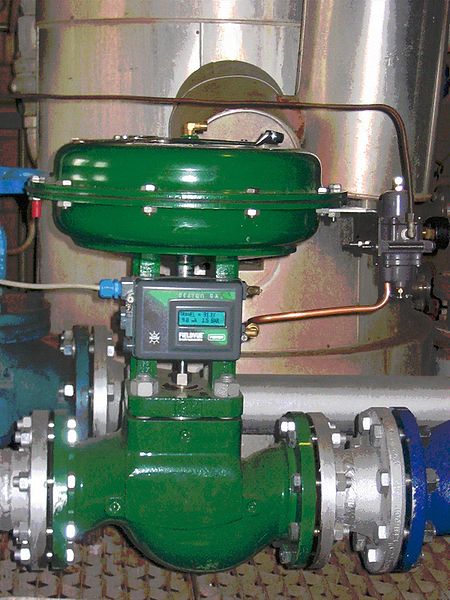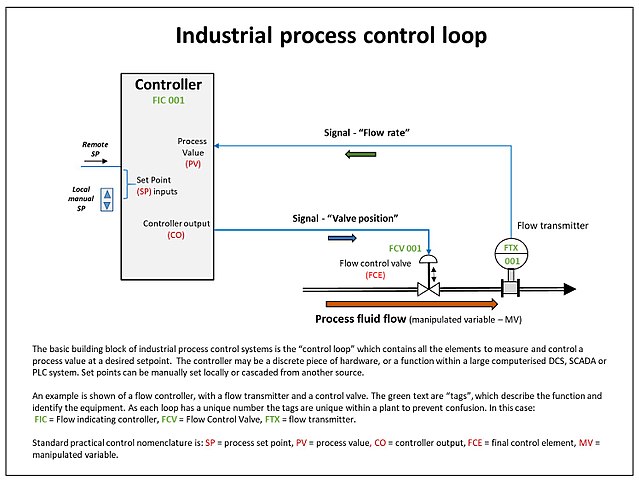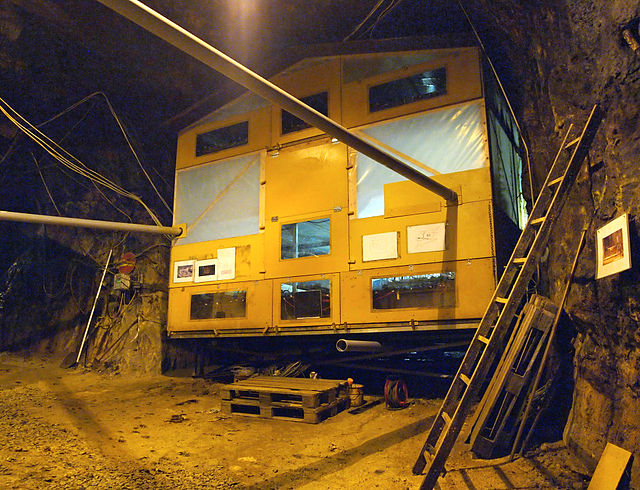Instrumentation is a collective term for measuring instruments, used for indicating, measuring, and recording physical quantities. It is also a field of study about the art and science about making measurement instruments, involving the related areas of metrology, automation, and control theory.
The term has its origins in the art and science of scientific instrument-making.
Control valve
A local instrumentation panel on a steam turbine
Example of a single industrial control loop, showing continuously modulated control of process flow
Pneumatic "three term" pneumatic PID controller, widely used before electronics became reliable and cheaper and safe to use in hazardous areas (Siemens Telepneu Example)
Measurement is the quantification of attributes of an object or event, which can be used to compare with other objects or events.
In other words, measurement is a process of determining how large or small a physical quantity is as compared to a basic reference quantity of the same kind.
The scope and application of measurement are dependent on the context and discipline. In natural sciences and engineering, measurements do not apply to nominal properties of objects or events, which is consistent with the guidelines of the International vocabulary of metrology published by the International Bureau of Weights and Measures. However, in other fields such as statistics as well as the social and behavioural sciences, measurements can have multiple levels, which would include nominal, ordinal, interval and ratio scales.
Four measuring devices having metric calibrations
Detail of a cubit rod in the Museo Egizio of Turin
A baby bottle that measures in three measurement systems—metric, imperial (UK), and US customary.
Measurement station C of EMMA experiment situated at the depth of 75 meters in the Pyhäsalmi Mine.








